Lauren's Story
In 2018, Lauren’s life changed in an instant when she suffered a traumatic brain injury after an accidental fall while helping a student down from a piece of play equipment.
.png)
She is now using her experience to educate others about brain injury, and help connect and support those in the brain injury community.
Can you tell me the story of your accident and how you acquired a traumatic brain injury?
5 years ago I was working as a reception school teacher here in Adelaide predominantly working with children with disabilities. I was helping one of my young students off a piece of play equipment that he was stuck on. On this particular day, I decided to climb up a couple of rails to get closer to him. I pointed to where he needed to place his feet and he got safely down to my level. But when he reached my level he decided to jump off the rest of the way. As he jumped he had a hold of my jumper and I simply lost my balance, fell backwards, and smacked the side of my head on a big metal pole on the way down to the ground. Thankfully my student was fine, but I unfortunately was not.
One of the first things I noticed as soon as I hit the ground was that my vision went. I was seeing double, it was blurry and I had shooting pain down my neck and spine. I was having trouble finding my words to explain what happened or converse with people. I don’t think I lost consciousness or at least not for very long but no one was there to witness my fall so I got up, which I probably shouldn’t have, and walked myself to the staff room to see if I could find someone to help me. My mum and dad actually came to work and took me to hospital where I was looked over and monitored for maybe a couple of hours and sent home. They didn’t scan my head or anything like that, my hospital experience wasn’t the best. I was told I had a mild concussion and would be back at work in a couple of days.
My first thought was great! But I knew deep down something wasn’t right. My mentality was the Doctor told me it was fine, I’m going back to work. That was my mentality for the first couple of months to be honest. I was so focused on going back to work and rehab was a secondary focus and it took me a while to switch those around.
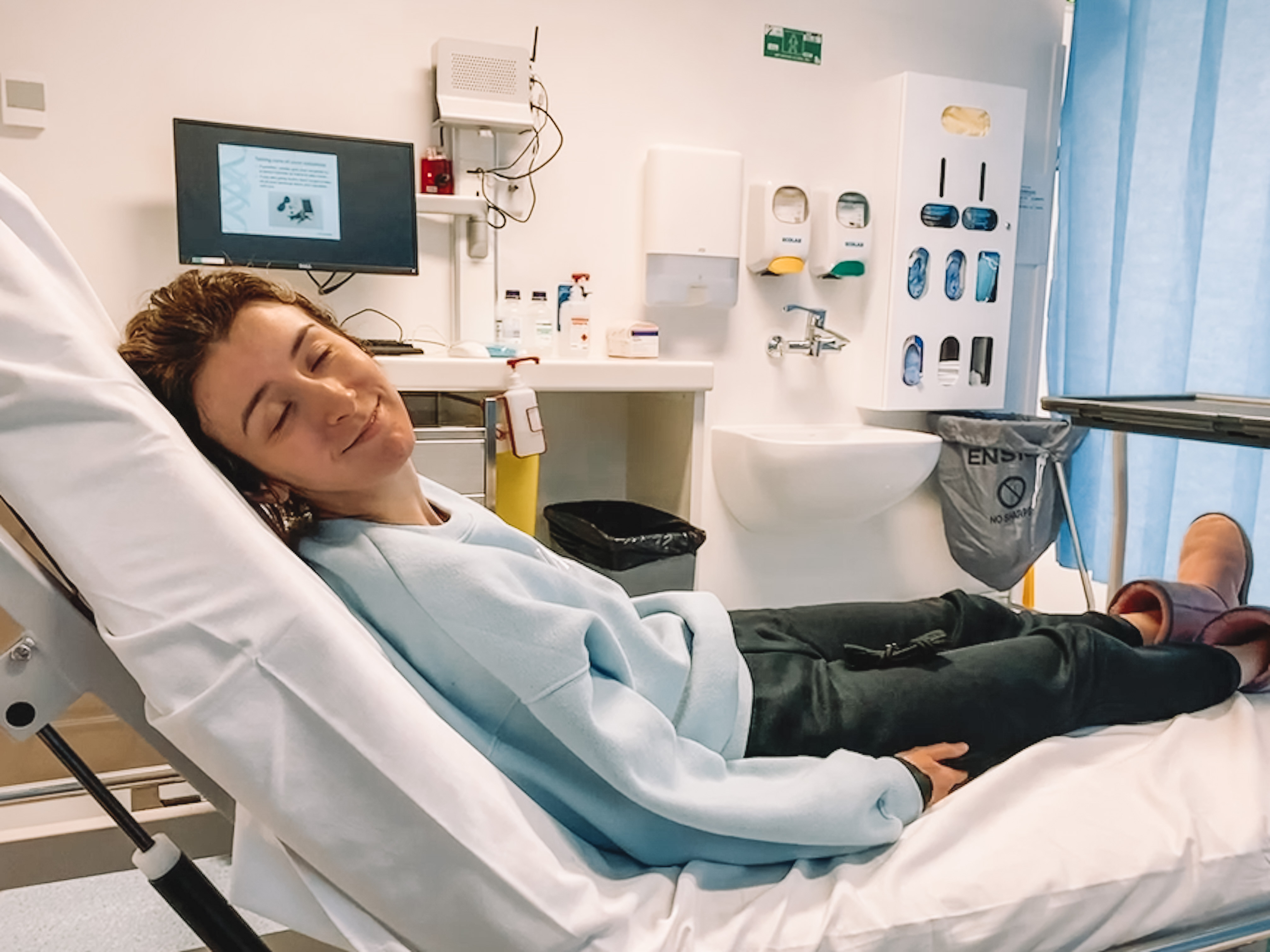
What happened after that day, tell me about the recovery and rehabilitation process?
For the next few weeks I was only getting out of bed to go to my GP. If it wasn’t for him I wouldn’t have gotten the rehab that I needed. I really do owe it all to him. He made me come and see him every day for 2 weeks. At that 2 week mark there was no improvement. I was a complete zombie and the only time I could get out of bed was to go and see him. I was still complaining about my eyes. I would walk to the bathroom and have nothing left, I would have to sleep the rest of the day I just couldn’t function.
So that was when I got in to see my first specialist, I think the first person I saw was my neuro-optometrist. He got me into a neuro physiotherapist and started the ball rolling for my rehab. It was probably 2 months after my fall I saw my first specialist. I remember as we were walking out he said to my mum, “She's in for a long ride to her recovery. Call me if she gets to a stage when she’s better, because I’m honestly interested. I don’t think it’s going to be for a very long time.” That was the first time it really hit us. It was such a complete change from the Doctor who told me I was going to be fine.
My breakthrough/breakdown point was a few months after my fall. My neuro physio was getting me to do all sorts of physical rehab testing to get my heart rate up and I was epically failing at all of them. I couldn’t even stand and walk on the treadmill to elevate my heartrate a tiny bit. My body just went into shock like I was going to faint. I literally got into the car and I just felt like a broken shell of a person and I cried the whole way home. That was the point that I was like I’m not OK.
For another 4 or 5 months I was still trying to go to work even if it was only for an hour or 2 a week. It was at the one year mark and the second hospital trip that got me to cut the ties between work. I don’t think I had a choice at that point. My Doctors looked at me and told me Lauren you're not going back to work. Rehab was still my full time job even through that first year but my mentality of work was it was everything to me. That changed at the one year mark for me, I had to put myself first.
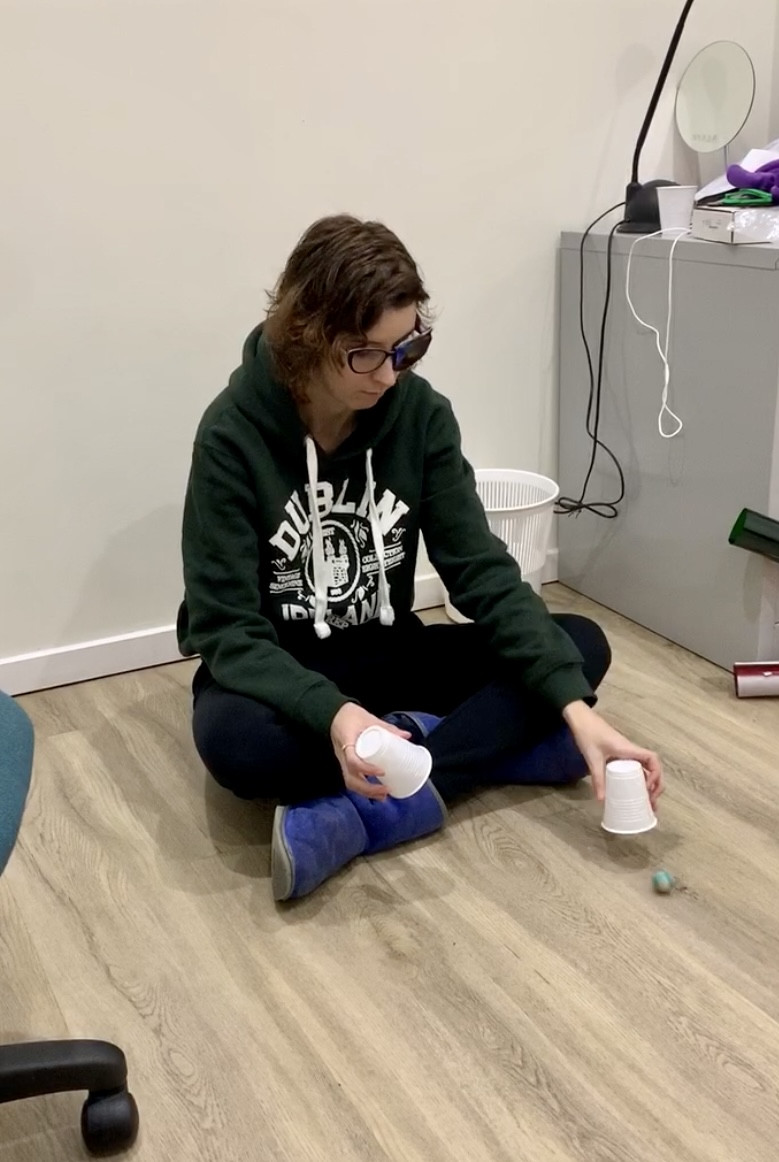
People often reach out and ask me, how did you navigate work? When did you know it was the right time to leave or how did you cope with it all? Honestly looking back, I was not going to listen to anybody who told me that I needed to let go of work. I think I needed to get to that point myself, and it took me a year. When it got to that stage, work was becoming a source of anxiety for me. I wasn’t looking forward to going, I wasn’t doing anything that I was qualified to do. I wanted to work as a teacher but it became more depressing to be there because I couldn’t do what I wanted to do. That was the point where I was like there are so many other things in my life that I am stressing about. I don't need to put work on top of everything. It was a little bit of a relief after but still heartbreaking at the same time because I wanted to be there. After that the pressure of forcing myself to get to work in some capacity throughout the week was gone. It was nice in a way just to solely focus on myself. Looking back I probably struggled with that because it feels selfish. I think in society we are ingrained that if you put yourself first then you are selfish. I find it really hard to put myself first. But it taught me a lot, it taught me that it's not selfish.
That first year was a blur to be honest, and maybe it’s a coping mechanism you kind of force yourself to not think about it. The initial stages of brain injury recovery is just failing at everything. It’s failing and then finding the strength to pick yourself up and try again in a different way, and perhaps failing again. My life became trial and error to find new ways to do daily tasks or simple exercises that I could do beforehand. In that first year I didn’t know what I was capable of doing anymore, and everything I would try I would fail. I would honestly have to fail at something 5 or 10 times before I found a way to do it successfully. You just have to try different ways of doing things but ultimately you’ve got to go through a lot of failure before you can find a successful way. Once I stopped work and put that anxiety out the window a bit, I started to notice a few more gains.
I couldn’t stand on one leg after my accident and I slowly built up with lots of physio, rehab, pilated and practice. I couldn’t follow a recipe, for probably the first 2 years. I’m not a great cook to begin with. I didn't really enjoy it, but I could follow a recipe. But cooking is really multitasking, and I could not do it, I was getting so angry. I’d end up throwing things and leaving the kitchen in a mess and giving up. It was little things like that that I just had to really practise in order to see gains.
One of the other tricky things is that you don’t see it when you’re living it. If you asked me in the middle of it I was like I’m making no progress. But a year on you look back and go oh look at how far I’ve come. Because of that it’s really important to surround yourself with people that can point out and acknowledge your successes. They can remind you that last week you couldn’t get up to step 3 and this week you can. You may not be able to do all 10 steps but last week you could only get to step 1. Everything about brain injury speed is slow, you go at turtle or snail speed. I would think why can’t I get in the shower and wash my hair without collapsing for 10 hours after? We take all the little things for granted until your body physically can’t do them.
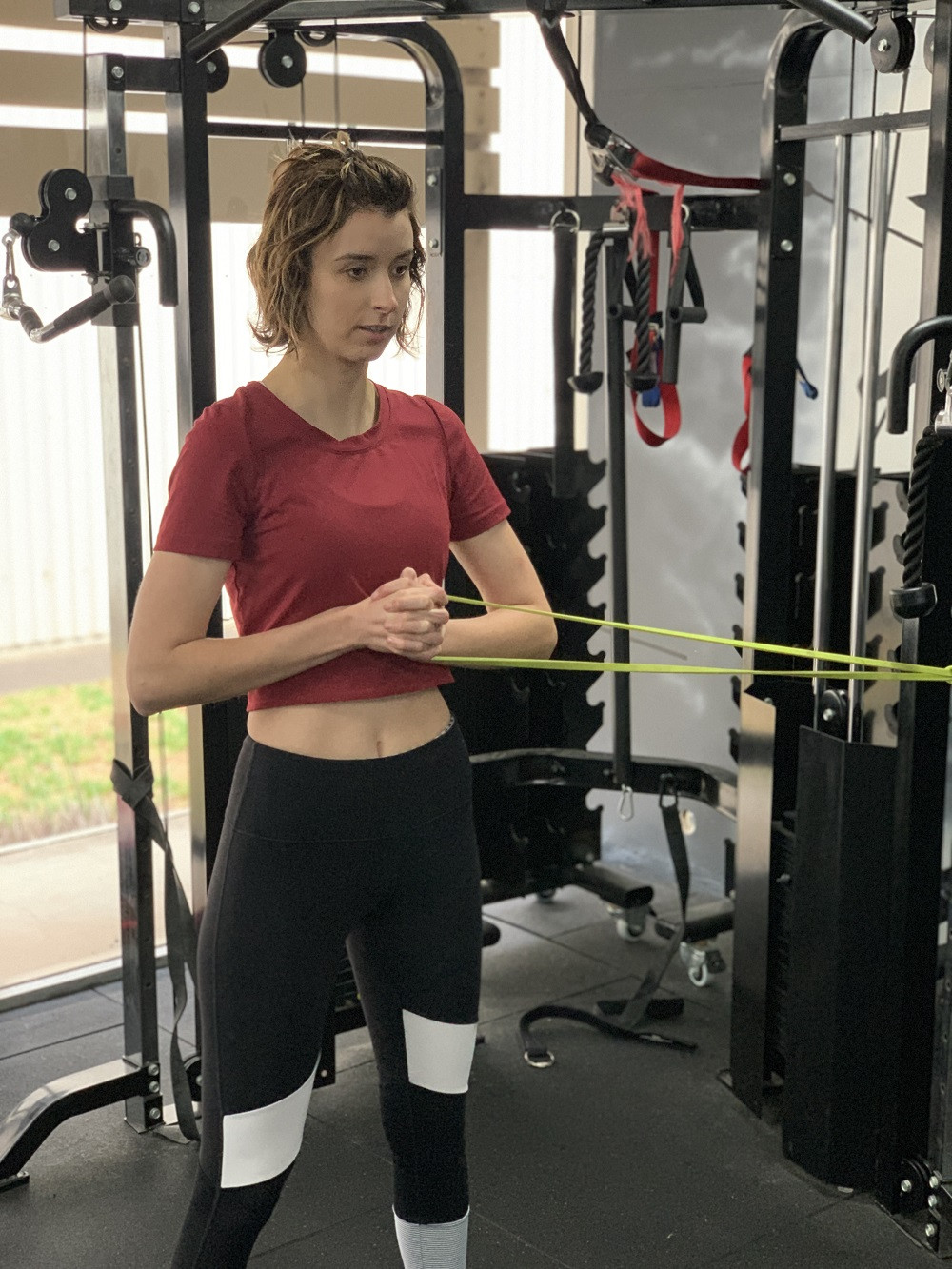
You created a blog to share your experience, how did The Orange Butterfly come about and where did the name come from?
I decided to publish the orange butterfly blog on my 1 year accident anniversary. My neuro physio and my psychologist really encouraged me to journal. It was initially for learning about fatigue, because you have to learn and educate yourself about fatigue management. The journal was about logging what I was doing every day and my fatigue levels so I could work out what I was capable of doing. They asked if I could write a few sentences or a couple of dot points on how I was feeling or what I was going through on that particular day. It became part of my daily routine that I really enjoyed. I really enjoyed English and writing at school so it came naturally to me. I couldn’t really look at a computer screen, so it was just a couple of handwritten dot points whenever I felt like it.
Towards the end of that year it started dawning on me that I was losing a lot of people that were in my life. I thought maybe it was because it was so hard for people to understand, particularly because my injury was 100% invisible. I looked like the same person to them so it was hard for them to understand what was going on in my head, or inside how I was feeling. I thought if I could turn my journal points into something that was legible like a story I could give it to people to read. I did that over a long period of time it took me forever. I got help typing it up onto the computer, and I gave it to my family and a couple of my best friends and I saw how much it helped them. I thought surely there were so many other people in the world that were feeling the same things that I was, so I just decided to put it on a website. My best friend created the website for me, I couldn’t have done that without her. We uploaded it and within the first couple of weeks I was getting messages on Instagram from all over the world, saying that they were literally going through the exact same thing that I was and they hadn’t been able to find the words to explain it to people. They said thankfully I don’t have to anymore because your blog is going to act like my voice.
Family members saying that their son or daughter or friend was going through that and I really helped them to understand. I kind of came across a whole online world that I didn’t even know existed. There were just so many people, and lots of people doing the same thing that I am sharing their journey to support others. Connection was something that I was really lacking. Connecting with people that understood what I was going through. I hadn’t connected with anybody with a similar experience until I uploaded my story. Emotionally and mentally that’s when things really changed for me. I started digging myself out of my hole and could see the light at the end of the tunnel. When you don’t meet anybody or find anybody that’s going through the same things that you are or feeling the same things that you are you don’t know if it’s normal. I really enjoyed coming across other peoples stories and it was almost like a relief. I was like I’m not relieved that you’re going through this but what I’m feeling is normal. I’m allowed to feel this I’m not going crazy, this is real. So it helped me just as much as my blog was helping other people. It just kind of grew from there. Building the online community was really awesome and now I have the in person Butterfly Hour community which is a really nice part of what I’ve created too.
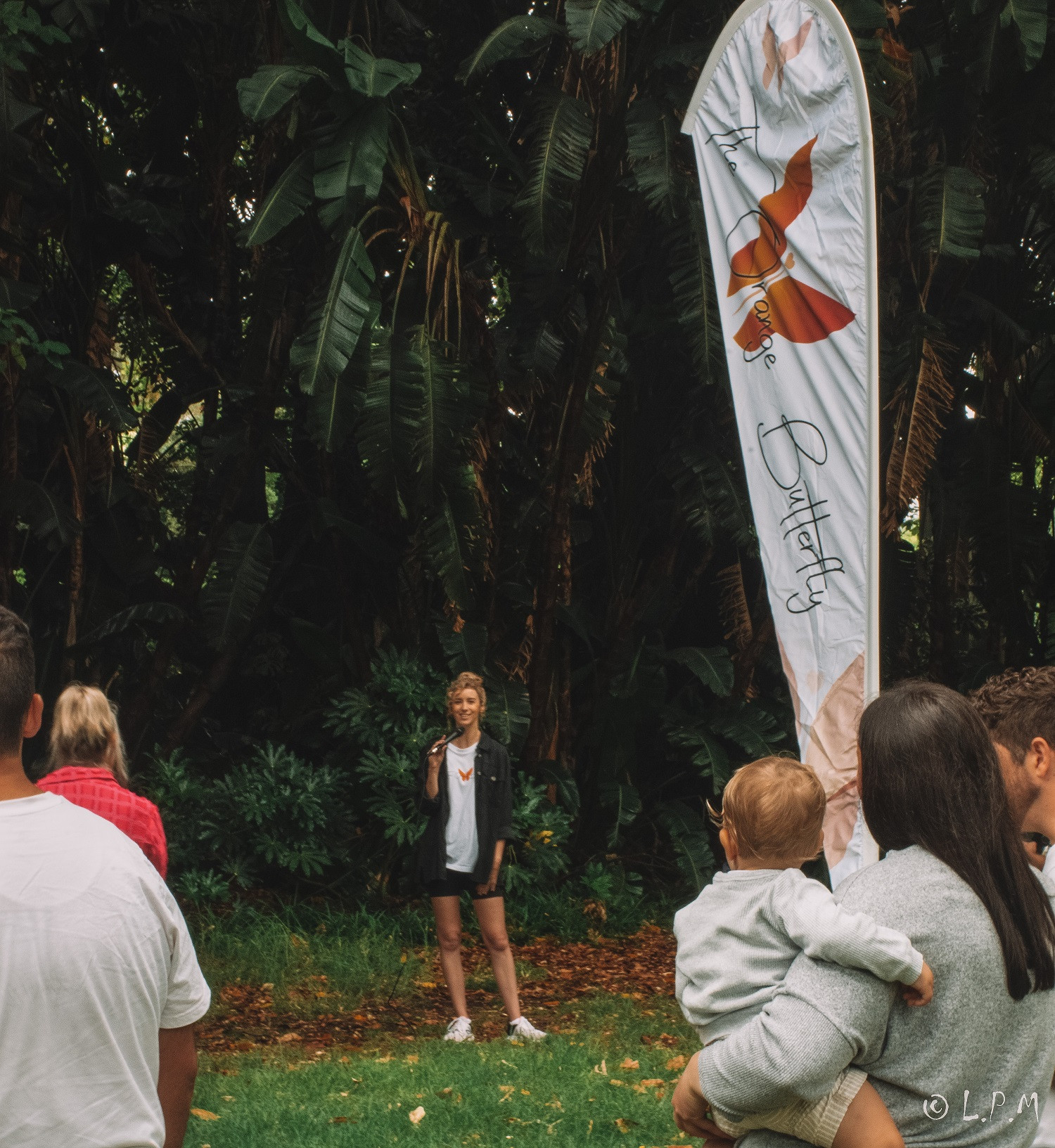
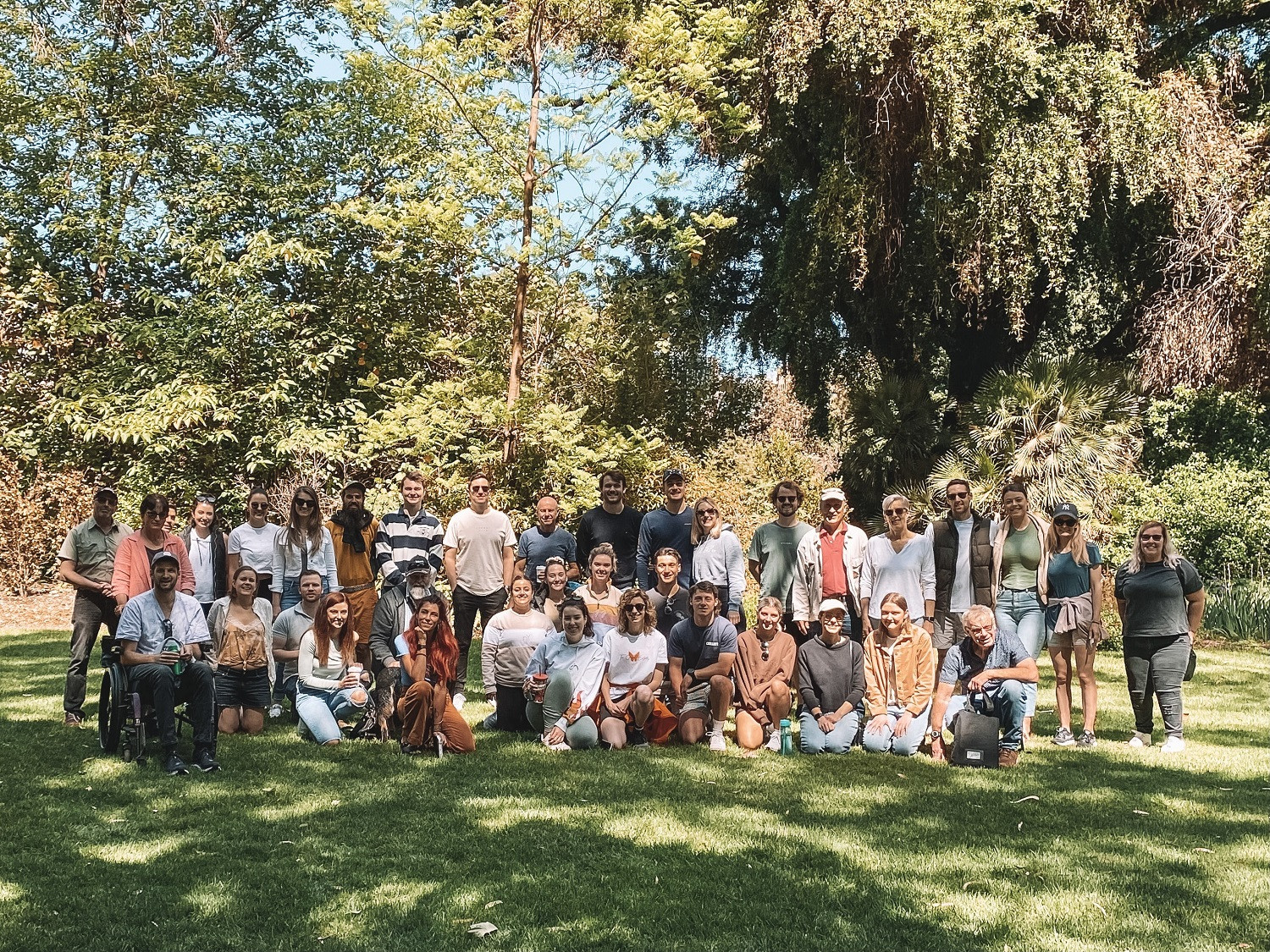
Everyone is welcome at Butterfly Hour which meets the last Saturday of every month 10am at the Adelaide Botanic Gardens. Spending time in nature helps to reduce overwhelming feelings of anxiety and depression, it can support and increase our ability to concentrate and think clearer, boost creativity and encourages connection building. It also has the ability to lower the amount of stress hormone, cortisol, we have in our bodies, ultimately calming our body’s fight or flight responses which often can become heightened after a brain injury.
The Orange Butterfly name I was really just trying to think of something that didn’t sound too corny. I knew that butterflies symbolise new life and rebirth and I came across a website that breaks down different butterflies and their meaning. Orange is my favourite colour so I was purposefully looking for it on the website and I really liked the meaning. It was all about embracing new life and pathways with hope and positivity, taking on new challenges. There were lots of things that resonated with what I was trying to create.
That’s where it came from and it’s just grown from there. We’re now a non-profit registered charity. I’m in the middle of planning a big gala launch event for the Foundation towards the end of the year and then hopefully we will be able to financially support people going through their rehab and recovery who may not have access to NDIS or workcover or any means of financial support. I’ve learnt the hard way that there are a lot of people that fall through the cracks in the system. Things like noise cancelling headphones, a specific specialist or specific equipment that might be able to be used to support their physical rehab. Hopefully these are the types of things the Foundation can help fund and I’m really keen to start supporting people that way.
What have you found helpful throughout your journey and what advice would you give others?
I think just having a GP or doctor that believes you and supports you in finding the answers that you need. Without my GP doing that for me I don’t know if I’d be here, I would not have gotten the rehab and seen the doctors I needed if it wasn’t for him. Especially if you don’t have other severe injuries as well, if you’re not in hospital for a long period of time or an inpatient at Hampstead or the Repat. Doing your rehab from home as an outpatient I don’t think we are surrounded by as much support as an inpatient would be, so finding that initial support is crucial.
The other thing that is needed is connection. I was really grateful for my close group of friends and my family. I could tell them everything but they also couldn’t have that personal connection and understanding and I didn’t want them too. I didn’t want anyone to experience what I had gone through. But when I first joined a brain injury support group through Brain Injury SA, that was the first time I met people in person that were going through a similar experience to me. That was a 10 week support group, and it was the best thing I ever did was connecting with people. Then of course connecting online through the Orange Butterfly also helped. Connection with people who understand and have had similar experiences is so needed for hope. I met people who were a few years down the track than I was. Seeing what they were doing now, I could ask them questions like can you do this? How do you cope doing that? At the time I didn’t know what I was ever going to be capable of doing anymore. Those support groups are free and we now do some one on one peer mentoring now as well so there’s group setting or there’s one on one for people who are not ready for a group. I am a peer mentor now and I love it.
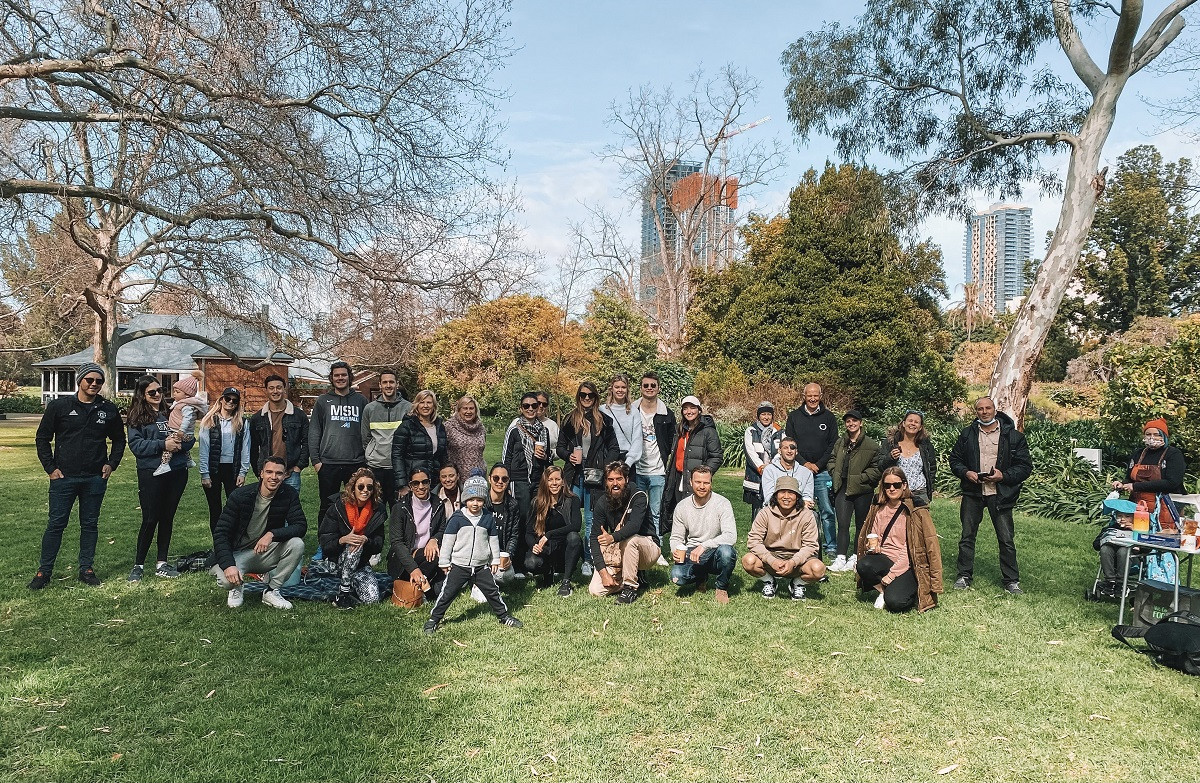
What are some things you wish people were more aware of when it comes to brain injury?
I actually did a blog post on this topic. What was really hard to explain to people was that just because I can do a task or activity one day doesn’t mean I’m going to be able to do it the next day. That was really hard for people to understand, I think because my injuries have been completely invisible. Trying to explain to people what you struggle with and you look ok, that’s always really hard. Noone sees you after your cute coffee catch up and you’re trying really hard to give all your energy to that person and then you go home and crash. Noone sees your bad days. You don’t see my bad days because I’m not up to seeing anyone, you only see me on my good days, that was really hard.
I also have a real problem with the term mild TBI. I understand that there are different severities and I’m not denying that at all but I think people just hear that word mild and think that my life has only been impacted in a mild way and that couldn’t be any further from the truth. My life has been impacted severely. It’s the same with the word concussion, people think oh good it’s just a concussion. Why do we talk about it like it’s not a real injury? It can be a life changing injury.
You hear things like “you’re so lucky it could have been worse”, “we all get tired”, “sleep it off you’ll feel better”. It might be coming from a complimentary or supportive place, but sometimes you don’t need a platitude or to have an answer. You can just hold space and validate what I’m feeling. What helped was the people that let me feel what I was feeling, if I was having a bad day and crying and wanted to vent and feel negative. Give me the space to feel what I’m feeling, I don’t need to be told to look at the brightside, just acknowledge what I’m feeling and let me feel it. I think that actually speeds up the process and you can move forward. The more people disregard you being upset, the more I wanted to dig myself a hole because then it felt like no one's understanding me, I just wanted someone to listen and try and understand then I could have gotten myself out of things a lot quicker. You need people around you that let you feel those emotions.
I also had one friend who would Google things before she’d come to see me so that she could talk to me about them. That was really helpful because she put in the effort to try and understand. That was something so little that might have taken an extra 10 minutes that really meant the world to me.
How are you feeling these days and what are you looking forward to?
I still see a few different specialists for rehab but it is not as frequent these days. A few years ago I had rehab every day and it’s nothing like that anymore. I was discharged from Neuro Physio at about the 3 year mark. I see a pain specialist still as I have nerve pain all throughout the back of my head in my occipital nerves so I have to get injections every 3 months to manage the pain, that is something that I will need to get as long as it’s needed.
Psychology is ongoing, I think that’s a good thing no matter what’s going on in life it’s a good thing to speak to a psychologist. I used to see my Behavioural Optometrist twice a week and that’s now 6-monthly check ups. It used to take me a full day to recover from those appointments. I had no idea how much your eyes and brain are working together in sync to perceive anything, and mine were just not in sync anymore. So doing all those exercises and activities to try and get the brain and the eyes to communicate in sync again was horrible. It was one of the most important things because it wouldn’t get better if I didn’t work at it but I had to force myself, it made me feel so sick. I also developed a sleep disorder, Narcolepsy, that requires daily medication that I have to stay on top of.
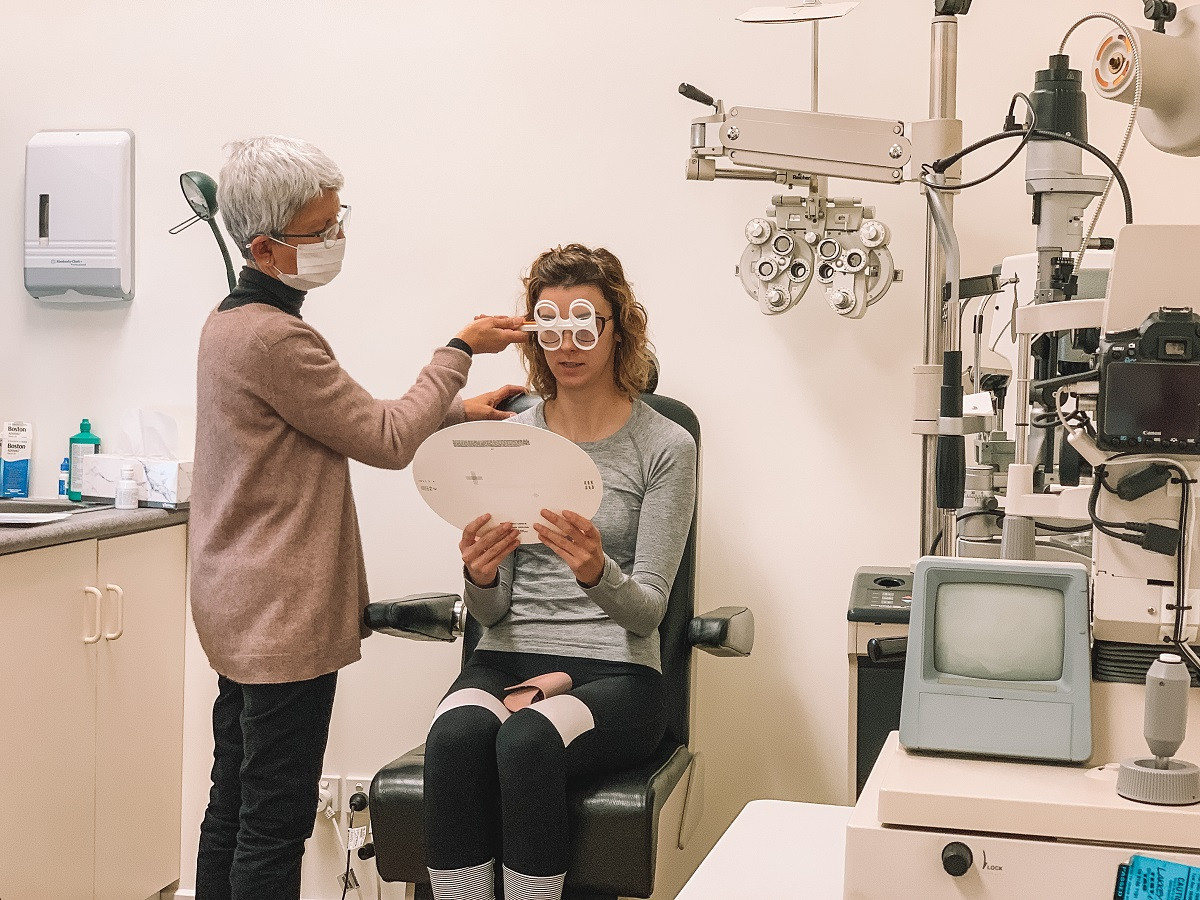
I remember someone saying to me that at the 2 year mark, whatever I’m doing or however I feel that was as good as I’m ever going to be. That made me anxious and upset in the lead up to that 2 year mark. But in saying that I’ve made more progress since that 2 year mark than I made before. My outlook is brighter, you find your sense of purpose and meaning of life again. Especially once you’ve worked out your trial and error and you start doing things successfully again. It builds up your positive outlook, and that started to happen to me after I hit that 2 year mark.
I started volunteering even just an hour a week at a local organisation and just started to build up my capabilities. There will always be reminders of my brain injury, I can’t escape it, but I can do more things successfully within my day than what I could 4 years ago so I’ve definitely come a long way. Emotionally and mentally that sense of purpose and meaning in life definitely helps me. Mentoring gives me that sense of purpose, the Orange Butterfly Foundation now does. I’m a Disability Inclusion Trainer now as well with JFA Purple Orange – we go out to different organisations and workplaces and deliver training on how people can be more inclusive with the disability community in their workplace or how they communicate with them. It's awesome training and I love doing that. I just recently this year started tutoring at Flinders University. I'm one of the tutors in an Introduction to Disability and Neurodiversity topic that’s been introduced at the Uni. It’s giving me back that sense of using my degree that I worked so hard to achieve. I'm teaching again in so many different ways. For the longest time it was really hard for me to look at my degree on the wall after I stopped work because it was like I’m never going to be able to use that again but I’m using it in so many different ways now.
Visit Lauren's online blog The Orange Butterfly
Follow The Orange Butterfly on Facebook and Instagram to find out details of the next Butterfly Hour catch up.
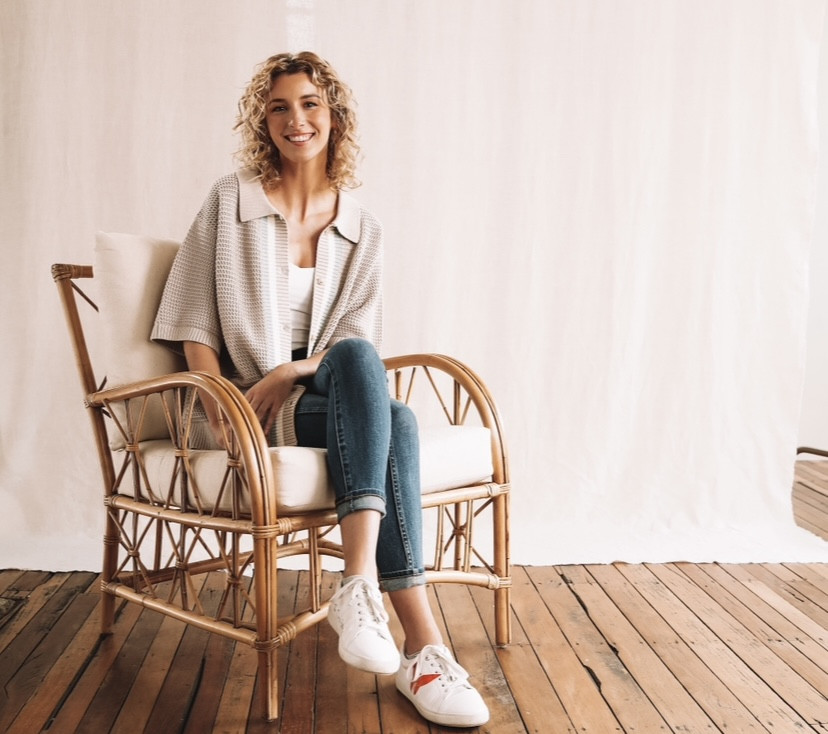
You can learn more about the cutting-edge traumatic brain injury research supported by the NRF here




